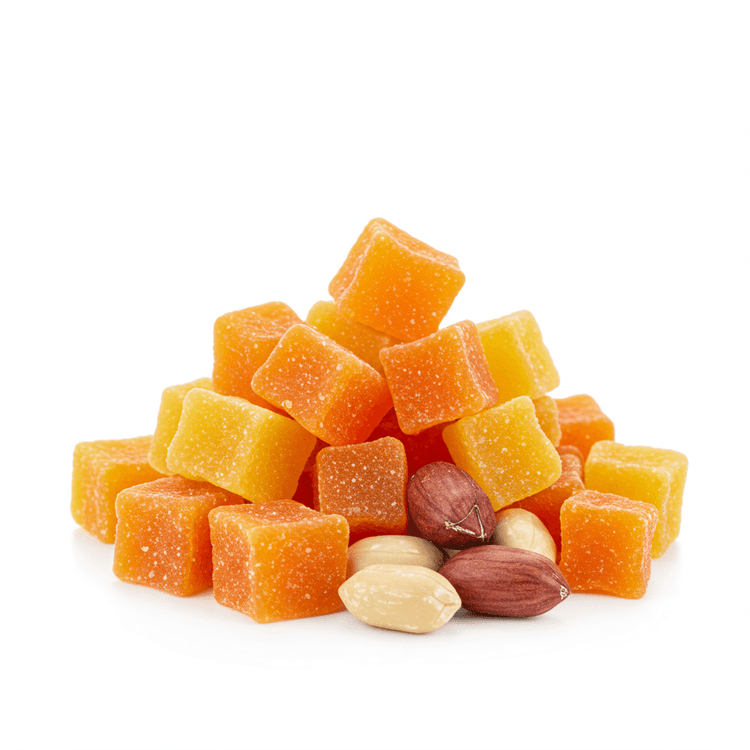
Fruit
Fruits are the sweet, fleshy, and often colorful seed-bearing parts of plants that are typically consumed raw or cooked. They come in a wide variety of flavors, ranging from tangy and tart to sugary sweet, and textures that can be crisp, juicy, or creamy. Fruits are not only a delicious snack but also a rich source of essential vitamins, minerals, and antioxidants. Popular examples include apples, bananas, berries, citrus fruits, and tropical varieties like mangoes and pineapples. Their vibrant appearance and natural sweetness make them a favorite for desserts, smoothies, and salads.
Common Uses
- Add fresh fruits like berries, bananas, or mangoes to smoothies for a naturally sweet and nutrient-packed drink.
- Use fruits such as apples, pears, or peaches in baking to create pies, tarts, and crumbles.
- Toss fruits like oranges, strawberries, or pomegranate seeds into salads for a burst of flavor and color.
- Make homemade jams, jellies, or preserves using fruits like strawberries, blueberries, or apricots.
- Grill fruits like pineapple, peaches, or watermelon for a caramelized, smoky flavor perfect for summer barbecues.
- Blend frozen fruits like bananas or berries into a creamy, dairy-free ice cream alternative.
Health Benefits
- Fruits are rich in vitamins, such as vitamin C and A, which support overall health and immunity.
- They are a great source of dietary fiber, aiding digestion and promoting a healthy gut.
- Fruits provide natural sugars, making them a healthier alternative to processed sweeteners in recipes.
- Many fruits are packed with antioxidants that help combat oxidative stress and support skin health.
- They are versatile in cooking, used in smoothies, salads, desserts, and savory dishes for added flavor and nutrition.
- Fruits are hydrating due to their high water content, making them ideal for maintaining hydration levels.
Substitutes
Chefadora AI is here.
Experience smarter, stress-free cooking.
Storage Tips
Store fruits based on their type: soft fruits like berries should be refrigerated and consumed within a few days, while hard fruits like apples and oranges can be kept at room temperature or refrigerated for longer shelf life. For cut fruits, store them in an airtight container in the fridge to preserve freshness. Avoid washing fruits until ready to eat to prevent premature spoilage.
Marnirni-apinthi Building, Lot Fourteen,
North Terrace, Adelaide, South Australia, 5000
Australia

